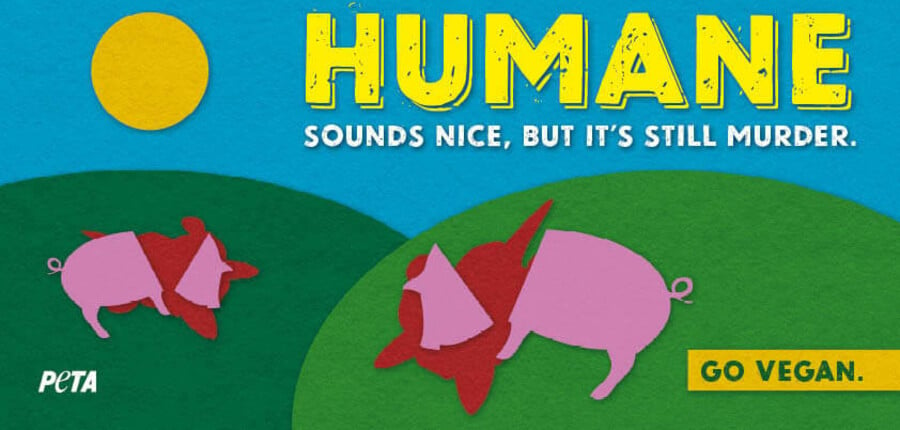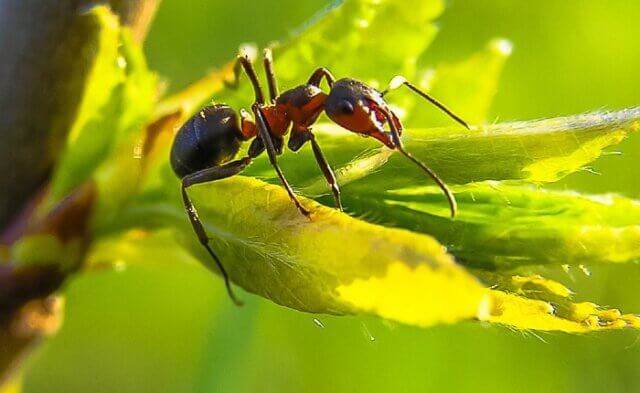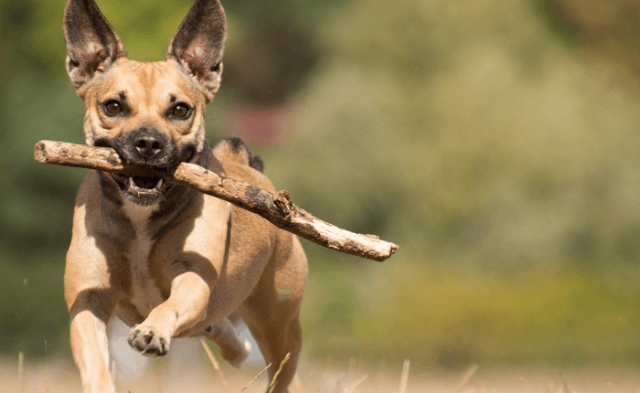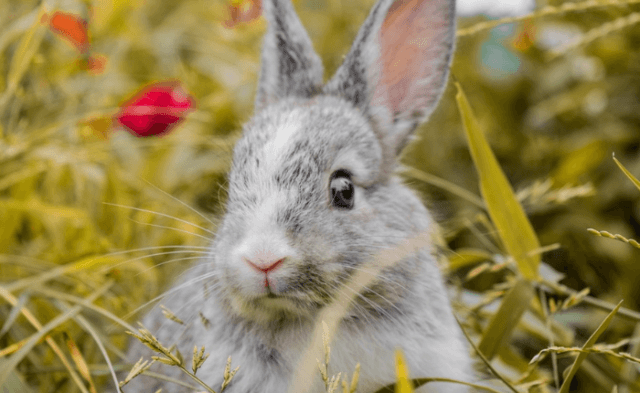Most people don’t want their hard-earned money to fund animal suffering. The desire for ethical, sustainable food inspires shoppers to be conscientious. While choosing kindness is a step in the right direction, companies that exploit animals still try to keep up with consumer demand—by lying.
Instead of switching to truly cruelty-free products like vegan meat, an increasing number of companies continue to sell the same exact products under misleading labels like “humane,” “ethical,” and “responsible”—duping consumers into thinking that they’re making kind choices when they’re not. This is called “humane washing.”
Animals in the meat industry are not given red-carpet treatment. Instead, they’re treated like disposable objects, confined in filthy and unnatural living conditions, and carelessly tossed into trucks destined for the slaughterhouse. “Humane” killing does not exist—no animal wants to die for someone’s dinner.
A prime example of humane washing was revealed by a recent PETA undercover investigation into Plainville Farms, a Pennsylvania-based company that claims its turkeys are raised in a “stress-free environment.” Turkeys are social, lively birds who love music and will sometimes cluck and dance along to their favorite songs. These curious, intelligent animals also love it when their favorite humans stroke their feathers and—just like dogs and cats—they have unique personalities. In their natural environment, turkeys are protective parents who are extremely bonded to their young. The chicks remain with their mothers for about five months, and a mother turkey will boldly guard her beloved family.
At farms supplying Plainville Farms, PETA’s investigator witnessed workers attack turkeys to instill fear—and for their own amusement—while rounding them up for slaughter. Employees kicked and stomped on turkeys as hard as possible and threw birds into the air by the wing, neck, head, and snood. Sometimes, they would even toss them back and forth like a basketball, just for “fun.”
This violent behavior was the norm, and crew leaders did nothing to stop the abuse. One leader actually encouraged workers to kick and throw the birds. He and other workers criticized PETA’s investigator for not kicking birds, saying that he should get a new job if he wouldn’t do things the “right” way.
Every year, about 245 million turkeys are killed for their flesh in the U.S. alone. Many people who would never knowingly support cruelty are falsely reassured when farms are certified “humane” by organizations such as Global Animal Partnership (G.A.P.), a group that is endorsed by The Humane Society of the United States, the American Society for the Prevention of Cruelty to Animals, and Compassion in World Farming.
Shoppers trust these groups and believe that they’ll protect animals in the food industry. PETA has shared the findings of our Plainville Farms investigation with these organizations, and we’re calling on them to stop promoting G.A.P.’s sham “standards” and giving the factory farming industry cover. So far, they have not.
But we can spread the word that—no matter what meat companies want us to believe—there is no such thing as “humane” meat.





